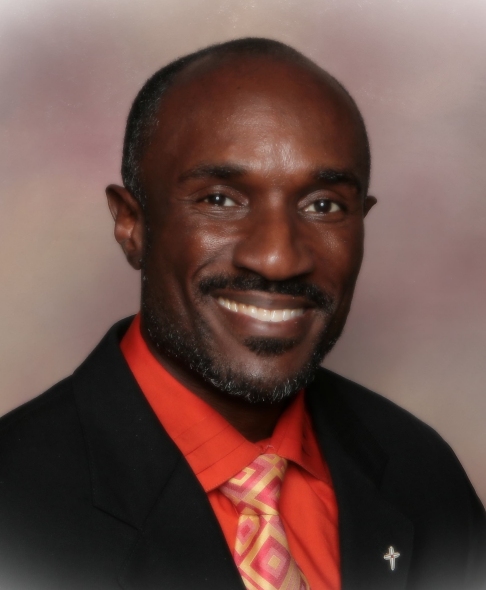By Jeff Brumley
Leading a church in a city recently described as the most “Bible-minded” in America does have its advantages, Thomas Quisenberry said.
Mainly: not a lot of necessity to explain the backstory during sermons and Scripture discussions, said Quisenberry, pastor of First Baptist Church in Chattanooga, Tenn.
“What I have found is the congregation is very Bible-aware, so it’s definitely fun to go into Bible studies,” he said. “They know the stories, they know the texts and they know the rich layers of Scripture.”
 Chattanooga’s high biblical literacy rate was recognized in a survey released this year by the American Bible Society. The same survey declared Providence, R.I., to be the least “Bible-minded.”
Chattanooga’s high biblical literacy rate was recognized in a survey released this year by the American Bible Society. The same survey declared Providence, R.I., to be the least “Bible-minded.”
Baptist ministers in both towns said they weren’t really surprised by the American Bible Society’s findings. They also confirmed that a region’s familiarity and devotion to Scripture can make it easier and more rewarding for pastors when preaching and teaching from the Bible.
But those ministers — plus another who has pastored inside and out of the Bible Belt — say the crucial issue isn’t a city’s attitude or reading habits around Scripture but whether lives are lived based on biblical principles.
‘Faith very important’
The ABS survey didn’t shock many in Chattanooga, though it made some people proud to be recognized, Quisenberry said.
The local newspaper recently published a story about the rankings, which have done little more than provide fodder for discussions around water coolers and in church halls.
The ranking reflects the practice of many Chattanoogans who view the Bible as a blueprint for life, Quisenberry said.
At First Baptist, it drives a variety of ministries to the homeless, stressed communities and schools and feeding programs for children from low-income families. The church also sponsors tutoring and art and music education for students who lack that kind of schooling.
“Religion and faith is still really important to people and it’s still a big part of everybody’s lives — whether it’s measured by the American Bible Society’s scales or not,” Quisenberry said.
South strongest, East weakest
The ABS study surveyed more than 47,000 people on attitudes and reading habits around the Bible over a seven-year period concluding in August 2013, and found that the South and Midwest consistently come in strongest.
The No. 2 city in the rankings was Birmingham, Ala., followed by Virginia cities Roanoke and Lynchburg, Springfield, Mo. and Shreveport, La., to round out the top five.
“Not surprisingly, many cities in the East Coast continued to rank as the least Bible-minded in 2013,” the ABS study added. The top five on that list were Providence, Albany and Buffalo, N.Y., and Portland, Maine.
‘No hunger’ for Scripture
It was definitely no surprise to Jabulani McCalister, the senior pastor at Calvary Baptist Church in Providence.
“I see that in New England in general, and specifically in Providence, the vast majority of the population is unchurched and have no interest in it [the Bible],” said McCalister, whose American Baptist congregation is multiracial and multigenerational and has many members who grew up with no biblical education at all.
“There is a lot of retraining that I have to do,” he said.
 Part of that includes communicating to members that the Bible is the basis for Christian living and that in order to grow spiritually, it must be read and studied regularly.
Part of that includes communicating to members that the Bible is the basis for Christian living and that in order to grow spiritually, it must be read and studied regularly.
But that’s often a hard sell in a city and in a larger culture where the Bible is viewed as just one book among others, McCalister said.
“There is no hunger for it overall,” he said. “There are pockets that are, but as a city there’s just not importance placed on it.”
Practicing Christ’s love
It is a fact that the South can boast being tops in biblical literacy, said Alan Sherouse, who left Metro Baptist Church in New York City for First Baptist Church in Greensboro, N.C., six months ago.
“There is definitely more of an acceptance of the Bible as a source for reflection and on life and ethics here in the Southeast and in the traditional Bible Belt,” Sherouse said.
While many read Scripture that way in the Northeast, they usually do so with much more of a challenge from roommates, family members and co-workers, he said, “because there’s less of a broad acceptance of it.”
 But Sherouse said he’s seen just as much of the living out of Scripture back East as he’s seen down South. It doesn’t mean one region does a better job than another at reflecting the principles of the Bible.
But Sherouse said he’s seen just as much of the living out of Scripture back East as he’s seen down South. It doesn’t mean one region does a better job than another at reflecting the principles of the Bible.
“In both regions I’ve seen Christians who seek to practice the love that we see in Jesus and the appeal to justice that we see in the prophets,” Sherouse said. “And to me, that’s ultimately the most important way I would measure the biblical influence in a person’s life.”
